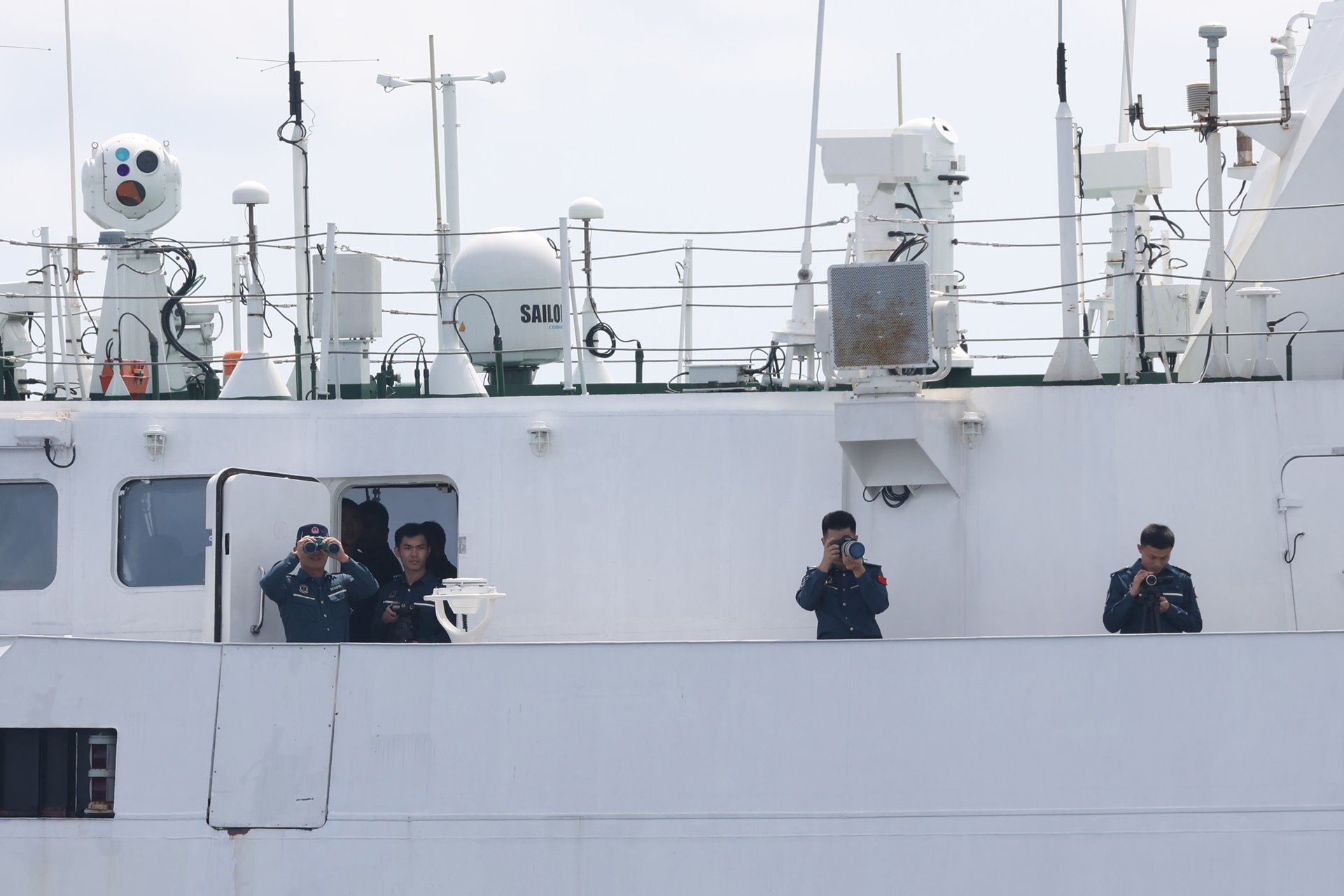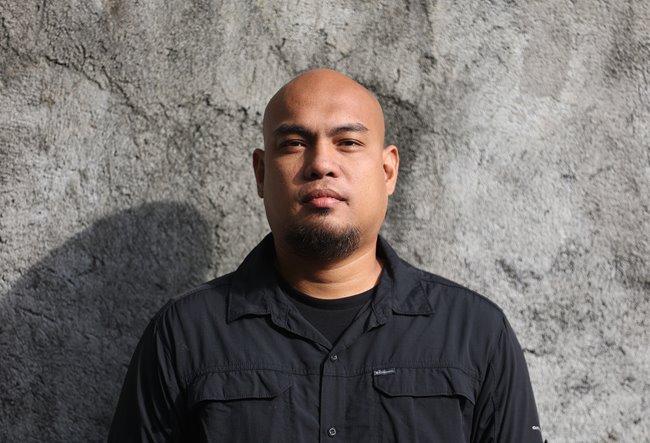Members of the Chinese Coast Guard photograph Filipino fishermen and media observers as they block the fishermen's attempts to enter the lagoon of Scarborough Shoal, off Zambales province, Philippines. Access to such a situation for journalists with limited means and no military status is difficult.
China, the Philippines, Vietnam, Taiwan, Malaysia, and Brunei all have competing claims over territory in the South China Sea. China claims by far the largest portion, which it demarcates by its so-called “nine-dash line”, a vague depiction of its claim encompassing about 90 percent of the territory. China added a tenth dash in 2013 to encircle the entirety of Taiwan. Over a third of the global shipping industry transits through these waters, and half of the world’s fishing vessels operate here. The South China Sea is also home to rich fishing grounds that provide for the livelihoods of millions of people across the region, such as the Philippine communities who fish in Scarborough Shoal, some 200 kilometers east of Luzon Island.
China reinforces its expansive claims in the South China Sea with island-building and naval patrols, raising concerns that the region is becoming a flashpoint, with potentially serious global consequences. Since 2012, Chinese maritime forces have effectively occupied Scarborough Shoal, part of the Philippines’ exclusive economic zone (EEZ), blocking access to Filipino fishermen’s traditional fishing grounds.
In July 2016, after a challenge by the Philippines to the nine-dash-line, a tribunal at the Permanent Court of Arbitration in The Hague released a ruling under the UN Convention on the Law of the Sea (UNCLOS) that overwhelmingly favored the Philippines’ position, upholding its sovereign rights. China rejected the findings, even though it is legally bound by the tribunal’s ruling by virtue of its ratification of UNCLOS.
In early 2024, Chinese occupation of Scarborough Shoal remained in force, exercised in a standoff between Chinese coast guard and marine military vessels and Philippine fishing boats. The Philippine government supplies food and oil to fishing boats at sea, thus extending their fishing time and asserting its rights.
Are you a photographer and/or passionate about press freedom? Sign up for our newsletter to stay updated on our annual contest and to hear about exhibitions near you.

